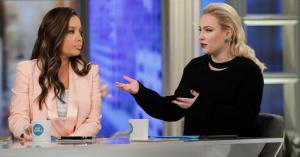As Congress makes moves to approve a third stimulus check, much debate remains over the total of the new payment. Currently, there are numerous proposals on the table, which would bump the previously approved $600 payments, passed under former President Donald Trump, over the $1,500 mark, with some lawmakers even calling for recurring $2,000 payments. As the discussions continue on Capitol Hill, though, one former U.S. Treasury Secretary has warned that increasing the payments could be a “pretty serious mistake.”
Weeks before President Joe Biden took the Presidential Oath of Office, one of his campaign advisors and a Wall Street Week contributor, Lawrence H. Summers, spoke with Bloomberg Wall Street Week‘s David Westin on the possible downside of bumping up the payment amount. Summers admitted that he wasn’t “enthusiastic” about the $600 payments included in the bill, which at the time had not yet been signed by Trump, and cautioned against calls for a third $1,400 stimulus check to later be approved in order to bring the total to $2,000. According to Summers, doing so would be a “mistake,” explaining that sending Americans such high payments would run the risk of “a temporary overheat” of the economy.
Videos by PopCulture.com
“You think about it; the $908 billion stimulus bill probably would pay out $200-250 billion a month for the next three months. The compensation level is running about $30 billion a month below what we would have expected it would. GDP is running about 70 billion a month below what we would have expected it would,” he said. “We have stimulus already, much more than filling out the hole. And given that lots of the hole is not from the fact that people don’t want to spend, but because they can’t spend — they can’t take a flight or go to a restaurant — I don’t necessarily think that the priority should be on promoting consumer spending beyond where we are now.”
Unsurprisingly, Summers’ remarks had caused some backlash, and he later expanded on his comments in a Bloomberg opinion piece. Remaining firm on his stance, he said, “there is no good economic argument for the $2,000 checks, a policy that was not even on the table until the president’s random pronouncement last week.” He said that implementing the increased payments would be “bad politics.”
At this time, discussions over a third stimulus payments are ongoing, though they seem all but guaranteed. What is left to be decided is their total, with Biden’s $1.9 billion proposal calling for $1,400 stimulus checks. A scaled-back GOP proposal, meanwhile, calls for $1,000 stimulus checks, many Republicans wishing to keep the total of additional relief under the $1 trillion mark. Biden met with that group Monday, though the details of that meeting remain unclear. A separate group of lawmakers has also called for more sweeping aid in the form of monthly stimulus payments, with many of those backing the push having made previous calls for recurring $2,000 payments.









